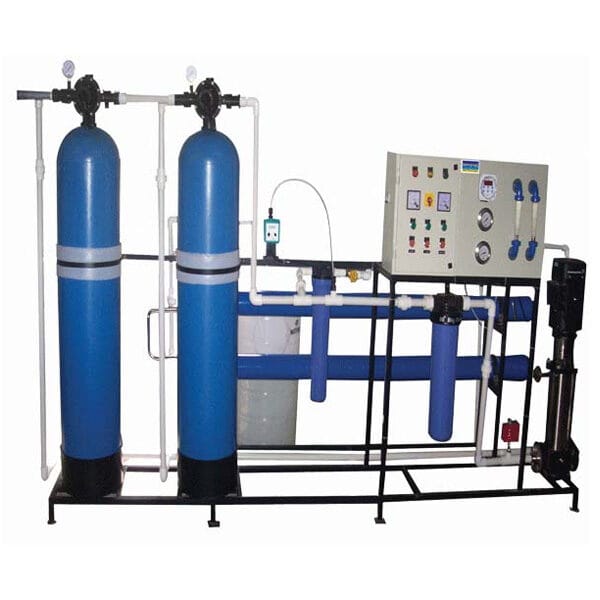REVERSE OSMOSIS AND ITS INDUSTRIAL APPLICATION
November 10, 2021
We are all cognizant of drinking water and its importance.
The water we consume must be free from impurities and harmful particles to avoid causing further damage to health.
This is where Reverse Osmosis comes into the picture.
For those who are unaware of it, Reverse Osmosis is a process to purify water through a partially permeable membrane that separates large molecules and impure substances from water, making it potable.
REVERSE OSMOSIS INDUSTRIAL APPLICATION:

Following are a few examples of Industrial applications where Reverse Osmosis plays a major role:
In applications like washing cars or cleaning the surface, the water is first softened with the use of the Reverse Osmosis process as the chemicals present in hard water may result in scaling and damaging the surface.
In Textile Industry, water is the main requirement for wet processing. Mainly the water used for the textile industry is natural and drawn from the ground. Hence it contains several impurities.
These impurities may lead to leaving spots on the fabrics. Hence, the Reverse Osmosis process is used in the Textile industry to ensure flawless dyeing and printing on fabrics.
Municipal Corporations provide water for domestic, commercial, and industrial processes. It becomes essential for them to opt for the Reverse Osmosis process as hard water may cause several damages.
The water that runs from municipal corporations is used for cooking, dyeing, pharmaceuticals, and in many other sectors.
The hard water is high in magnesium and calcium, which may deteriorate the quality of water.
Reverse Osmosis is used in boilers, as the presence of hard water decreases its efficiency. The magnesium and calcium present in hard water may lead to overheating and tube failure.
Hence the water is first softened with the help of the Reverse Osmosis process and later used for mechanical, chemical, and pharmaceutical industries.
APPLICATION OF REVERSE OSMOSIS IN FOOD INDUSTRY

When we talk about the food industry, water is an essential part as it is used in all the stages whether it’s washing, boiling, or cooking.
It now becomes important that water used for these processes is free from chemicals. As the impurities present in water may result in deadly diseases like E.coli.
Almost every food industry has opted for reverse osmosis process to purify the water and segregate harmful substances from it.
Reverse Osmosis helps balance the salt level as the liquid passes from a solution of lower concentration to higher concentration.
Therefore the water is free from chemicals, organic materials, sediments, and other impurities and now can be used in the processing of food.
APPLICATION OF REVERSE OSMOSIS IN DAIRY INDUSTRY

In terms of milk production, collection, processing, and waste disposal, the Indian dairy business is extremely diverse.
Membrane processing enables the dairy industry to produce high-quality, nutritious dairy products at cheaper costs while using less water and reducing product waste.
Reverse osmosis (RO) is still evolving in comparison to existing traditional methods of milk concentration, with additional applications in dairy processing emerging as a result of its potential benefits.
This research provides a thorough analysis of RO, membranes, process factors, fouling, benefits, and demerits, as well as potential suppliers and membrane-using dairy facilities in India.
DTPPL provides industrial reverse osmosis plants to enterprises to remove pollutants and hazardous compounds such as magnesium and calcium from the water. The softened water can then be used for commercial and industrial purposes.









